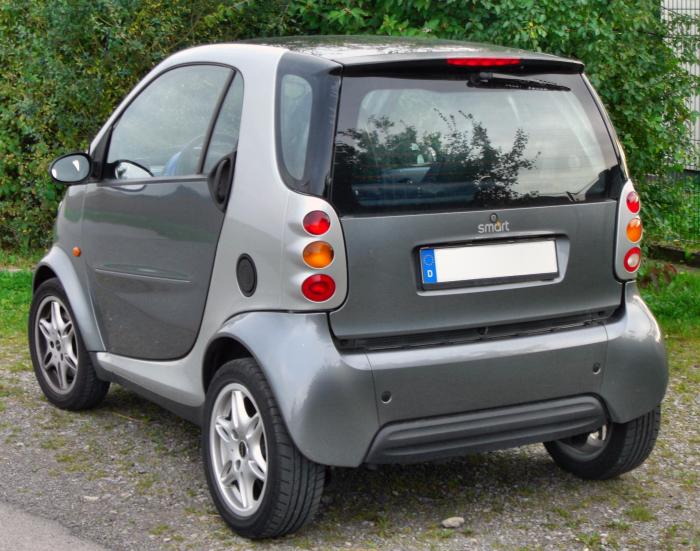How Smart Homes Contribute to a Sustainable Future is not just a title; it’s a vision for the world we aspire to create. As technology evolves, smart homes emerge as a pivotal solution in our quest for sustainability, blending convenience with eco-friendliness. By integrating advanced technologies, these homes enhance energy efficiency, optimize resource usage, and actively reduce our carbon footprint, all while providing a comfortable living environment.
From intelligent energy management systems to smart appliances designed for optimal performance, the features of smart homes facilitate significant energy savings. This transformation in how we interact with our living spaces is crucial for addressing urgent environmental challenges and moving towards a greener future.
The Definition and Importance of Smart Homes

Smart homes are residences equipped with devices that automate tasks traditionally performed by humans. These devices are interconnected and can be controlled remotely, making daily life more convenient while also enhancing energy efficiency. Smart homes utilize features such as smart thermostats, lighting systems, and security devices designed to optimize energy usage. The significance of smart homes in promoting sustainability lies in their ability to reduce energy consumption, minimize waste, and lower carbon footprints.
Smart home technologies like smart meters and energy-efficient appliances play a crucial role in enhancing energy efficiency. For example, smart thermostats adjust heating and cooling settings based on occupancy and weather conditions, saving substantial energy. Additionally, smart lighting systems can automatically turn off when a room is unoccupied or adjust brightness levels based on natural light availability, further contributing to energy conservation.
Energy Management Systems in Smart Homes
Energy management systems are integral to the functionality of smart homes, allowing homeowners to monitor and control their energy usage. These systems analyze energy consumption patterns and provide insights into how energy is being utilized throughout the home.
The benefits of using energy management systems include:
- Real-time monitoring of energy usage
- Cost savings through optimized energy consumption
- Increased awareness of energy expenditures
- Ability to set energy-saving goals
- Integration with renewable energy sources for sustainable living
Integrating renewable energy sources, such as solar panels, into smart home systems helps reduce reliance on fossil fuels and decreases overall energy costs. Homeowners can track their energy generation and consumption, ensuring they use clean energy as efficiently as possible.
Smart Appliances and Their Role in Sustainability

Smart appliances are designed to be energy-efficient and environmentally friendly. Examples include smart refrigerators, washing machines, and dishwashers that optimize their operation based on user behavior and energy prices.
Compared to traditional appliances, smart appliances provide significant benefits in energy optimization. They adjust their settings automatically to reduce energy waste, which leads to lower utility bills.
Below is a comparison table illustrating the energy consumption between smart and non-smart appliances:
| Appliance | Smart Appliance Energy Consumption (kWh/year) | Non-Smart Appliance Energy Consumption (kWh/year) |
|---|---|---|
| Refrigerator | 300 | 500 |
| Washing Machine | 200 | 250 |
| Dishwasher | 150 | 250 |
Home Automation and Resource Conservation, How Smart Homes Contribute to a Sustainable Future
Home automation plays a vital role in conserving resources, particularly water. Smart irrigation systems are examples of technology that helps minimize water usage by adjusting the watering schedule based on weather conditions and plant needs.
Additionally, automation can reduce waste through precise resource management. For instance, smart home systems can control water usage in bathrooms and kitchens, ensuring that resources are not wasted during daily activities. These systems can detect leaks and notify homeowners, preventing unnecessary water loss.
Smart Homes and Carbon Footprint Reduction
Smart homes significantly impact reducing carbon footprints by enabling homeowners to track and minimize their greenhouse gas emissions. Technologies such as energy monitors and smart thermostats allow users to see how their energy usage correlates with emissions, empowering them to make informed choices.
Homeowners can adopt various practices to further reduce their carbon footprint:
- Implementing energy-efficient lighting and appliances
- Utilizing renewable energy sources
- Maintaining optimal insulation and sealing
- Participating in demand-response programs
- Educating family members about energy conservation
The Future of Smart Homes in Sustainable Living

Emerging trends in smart home technology focus on enhancing sustainability and eco-friendliness. Innovations like artificial intelligence and machine learning are being integrated into smart home systems to further optimize energy use and resource management.
A roadmap for future developments includes expanding compatibility with renewable energy solutions, improving user interfaces for better accessibility, and enhancing data analytics for energy consumption.
Challenges in integrating smart homes into urban planning include infrastructure costs and the need for public awareness and education about smart technologies. Solutions may involve partnerships between governments and technology companies to promote sustainable practices and facilitate easier adoption of smart home systems.
Summary: How Smart Homes Contribute To A Sustainable Future
In conclusion, the impact of smart homes on sustainability is profound and multifaceted. By adopting smart technologies and practices, we not only enhance our quality of life but also contribute to a larger movement aimed at preserving our planet. The future of smart homes promises even more innovative solutions to environmental issues, encouraging homeowners to embrace eco-friendly practices and inspire communities towards a sustainable lifestyle.